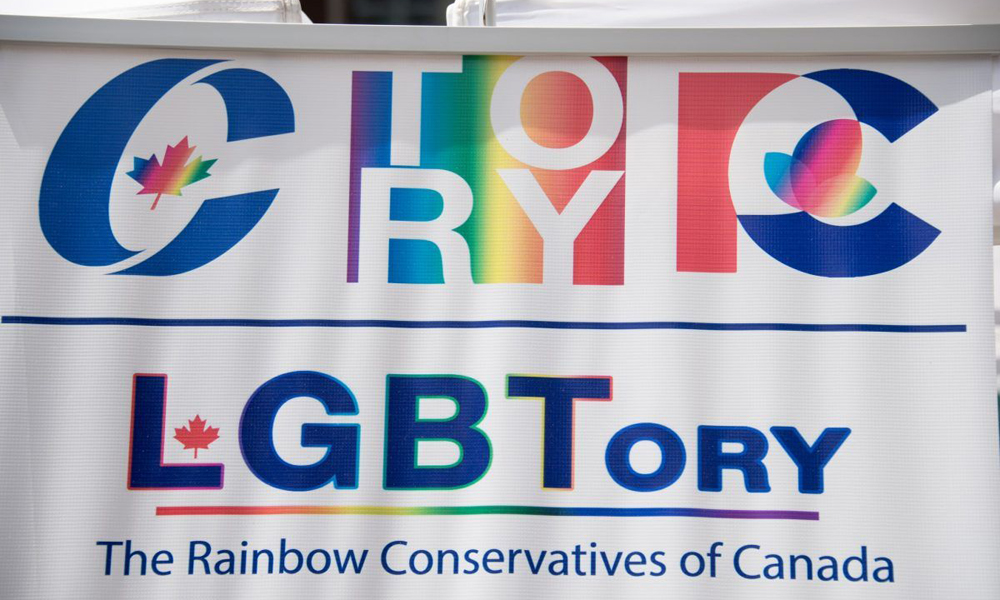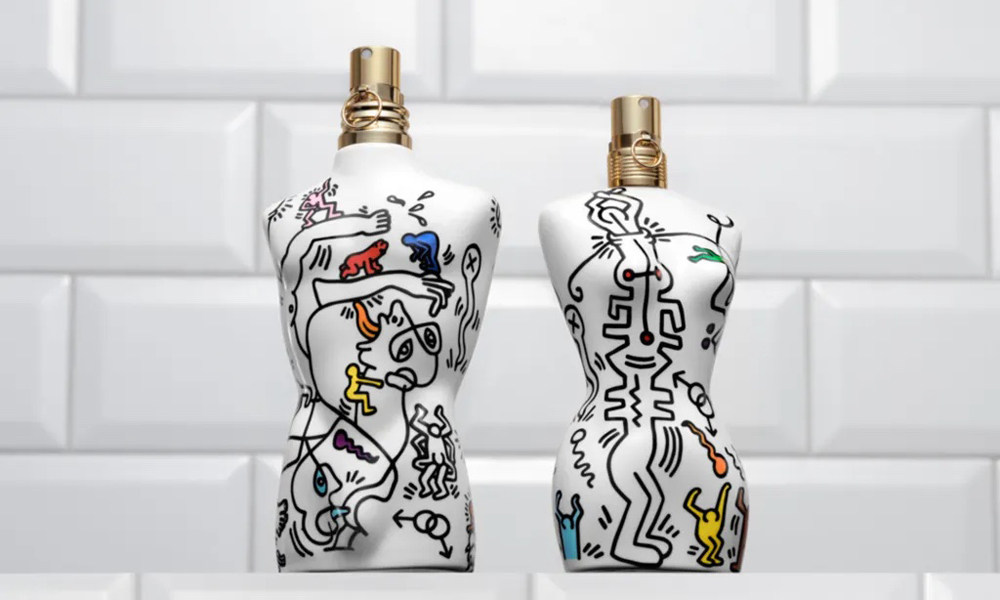Why LGBT Canadians spend money or time on conservative campaigns, and what it means for the right…
Talking politics has never been easy. It’s right up there on the list of subjects to avoid during dates or family dinners. But today, against a backdrop of boiled-over xenophobic tensions in the United States and around the world, conversations about who you support politically can turn downright ugly…even violent.
That’s why it’s increasingly important for people to take time and find support from their communities, sharing in solidarity and refuelling for the fights ahead.
Well, most people.
Not every spoke on the political wheel matches neatly into a demographic. Case in point: the gay Conservative.
Yes, they do exist – LGBT voters in Canada who show up, put in hours and check their ballots for the blue cause. Their donations of time, money and votes are welcomed by the variations of Conservative parties across provinces and ridings.
But by their own community? Not so much.
From queer clubs to coffeehouses to charity events, LGBT Conservatives are routinely dressed down for aligning themselves with the right. It’s a lonely road, and one that hasn’t been easy to walk – literally.
“We had stuff thrown at us as we marched. There was even a petition to keep us out of the Pride Parade,” says Eric Lorenzen, long-time Conservative campaigner and riding volunteer, as well as vice-president of communications for LGBTory.
Today, LGBTory works to consult Conservative parties across Canada on LGBT policies and advocacy, but its roots in 2015 were focused on organizing Conservative participation for the 2016 Pride celebrations in cities like Toronto and Ottawa. Participation that, as Lorenzen learned, wouldn’t come without a cost.
“There’s a perception, rooted in reality, that Pride festivals are hostile to Conservatives. But I’m not going to sugar-coat it – Conservative parties federally and provincially do have baggage in regards to LGBT issues,” he says.
In Canada, that “baggage” translates to a story of Conservative parties that have been slow to embrace LGBT people and their rights. Federally, the party voted to remove their opposition to gay marriage at their 2016 convention – a full 11 years after a Liberal government made that marriage legal. Former Conservative Prime Minister Steven Harper’s refusal to attend Pride celebrations persistently dogged him.
Provincially, not much is different. Ontario’s Progressive Conservative party caused a stir in late 2018 when a resolution to consider gender identities outside of male and female to be “unscientific liberal ideology” was passed at their convention – just a few months after that same newly elected PC government scrapped the queer-inclusive sex ed curriculum from schools. Around the same time in Alberta, 26 members of the United Conservative caucus voted against a bill to support high school gay-straight alliances and prevent students from being outed to their parents.
So how do card-carrying queer Conservatives resolve pushing an agenda that may leave them, or their community, out in the cold?
In the past, the answer would be not to. Take Nova Scotia MP Scott Brison, who – after becoming the first openly gay member of Canada’s Conservative caucus – crossed the floor to join the Liberals in 2003. Other notable Conservative legislators – Phil Gillies, Heward Grafftey – all spoke openly about their sexual orientations only after their political careers had ended.
Yet a lot has changed since Brison’s floor-crossing. Younger, openly queer people are entering a party that, in some corners, still seems split on recognizing their rights.
To understand why, I spoke to a few.
“In any kind of right-wing movement there’s a stigma that they’re all secretly homophobic, but it’s not like that,” says Josiah Green, a 19-year-old gay university student who became a member of his riding’s executive council after being swayed by the People’s Party – a newly formed, further-right federal party led by former Conservative minister Maxime Bernier.
At one point, Green avoided talk of politics with a previous boyfriend, recognizing the fights it would start. “People have these stereotypes in their minds, and they jump to conclusions instead of listening to what I’m actually saying and what I actually believe.”
What are those beliefs? Less government, fewer taxes, no special treatment –for LGBT people or the religious groups that oppose them.
“Hard work, less government in your life, living within your means – these were ideas I’ve always grown up with,” says Patrick Schertzer, a gay 26-year-old who has volunteered for more than a dozen Conservative campaigns.
When asked how he feels about the party’s history with LGBT issues, Schertzer says he believes a new, more inclusive approach is being taken by the right.
“Look at Tanya Granic Allen – the [Ontario] Premier and the party came out and said, ‘You’re not going to run for us; you have views too extreme that don’t align with the kind of big tent party we’re creating.’ I think 10 or 15 years ago we wouldn’t have seen that.”
The Granic Allen he refers to, of course, is the anti-sex ed advocate whose presence in the party swelled during the Ontario Progressive Conservatives’ 2018 leadership race. After being defeated there, she became a candidate under the PC banner for the general election – that is, until the party gave her the boot over her controversial homophobic and Islamophobic remarks.
Many Conservatives point to her pink slip as a sign of changing tides in the party, while others say her energizing of social conservatives is the reason Doug Ford is sitting in the Premier’s chair (in the ranked ballot leadership race, her supporters flocked to him, pushing him over the winning threshold).
But it raises an interesting question: what should parties on the right do about social conservatives?
After all, there’s nothing inherently homo- or transphobic about the philosophy of conservatism, or “small c” as it’s fondly called. Theirs is a philosophy of free societies, open markets and little government intervention, ideas similar to what brought Green and Schertzer to the right initially.
“Big-c” Conservatives, however, are tied to the Conservative party (or their politically right equivalents). Here the roots of anti-LGBT sentiments run deeper, as far back as pre-Confederation Canada. The Catholic Church’s influence and British Protestant ideas about sin and morality were stitched into the fabric of the right, agitated by a growing divide between rural and urban communities.
So should Conservatives kick them all to the curb like they did Granic Allen? If you look at it as a political strategist, the answer is no – not if you want to keep winning.
After all, you can’t discount the voting power of social conservatives. It’s widely believed that the new federal Conservative leader, Andrew Scheer, won the leadership race over more progressive candidates because he consolidated the support of social conservatives. In Ontario, many still scratch their heads at how 19-year-old pro-lifer Sam Oosterhoff won the PC nomination in his riding, beating out the party’s president. The answer? Mobilizing his church congregation.
But it’s not just a matter of votes for everyone.
“[Social conservatives] want to be able to raise their families as they see fit, to be free to worship as they see fit. They want the state to leave them alone, and that’s what I want – as a gay person – is for the state to leave me alone,” says Lorenzen.
“Social conservatives are a legitimate part of the party, and they’re welcome to be there. I may not agree with them, but they’re welcome,” echoes Schertzer.
This ability to disagree but collaborate with social conservatives feels at odds with what sometimes happens in queer spaces, says former Calgary and Ottawa Conservative staffer Vandon Gene.
“Many of my friends and colleagues in the LGBT community look down on me for identifying or having any connection to the [Conservative party]. Comments range from ‘are you a self-loathing gay man?’ to ‘do you hate the LGBT community?’,” Gene says.
As a person of colour, he says those criticisms are doubled – with people also accusing him of working for a racist party.
“Believe it or not, I’ve experienced more racism within the LGBT community than I have in the world of Conservative politics.”
And that may be a clue to the right’s successes in Canada. If you prioritize coalition-building in the face of deeply personal differences, you’re already two steps ahead in the game of politics. However, it then becomes harder to map the party’s future or core values.
But for LGBTory and Lorenzen, slow and steady change has always been the plan.
“It’s better that we’re working within the party to change attitudes because when criticism comes from us it can’t be dismissed as sniping from the left. When it comes from us, it’s coming from within the political family,” says Lorenzen.
And what would a family be without a little dysfunction?
—
KEVIN HURREN is a former speechwriter for Ontario’s 25th premier, Kathleen Wynne, as well as a senior communications advisor for members of her cabinet. He is also the former chair of the Ontario Public Service Pride Network and has worked with LGBT political campaigns. Currently, he’s a freelance writer and consultant based in Toronto’s gay village.

Gay Conservatives: A Political Paradox
Related Articles
Kathy Griffin Is Back On The Road, And Feistier Than Ever
After six years, the award-winning comedian is back on the road for her My Life On The PTSD-List tour, which includes stops across Canada
Photo Gallery: The Enchanté Network’s National Black 2SLGBTQI+ Futures Summit
Highlights from Canada’s largest convening of Black 2SLGBTQI+ leaders and movement makers
Jean Paul Gaultier’s Pride 2024 Perfume Bottles Get The Keith Haring Treatment
Available starting May 15, Jean Paul Gaultier’s “Classique” and “Le Male” Pride bottles honouring the work of Keith Haring will be on shelves for a limited time





POST A COMMENT